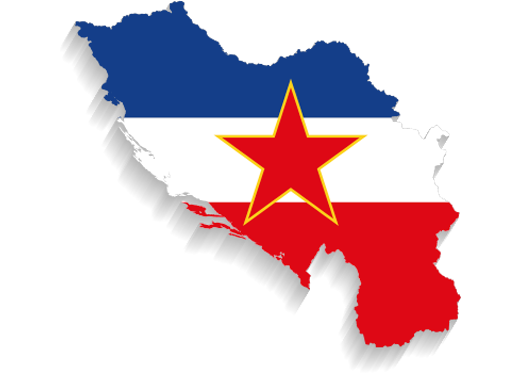(Grant Agreement n. 669194)
In socialist Yugoslavia, the leading federal trade organisation was the Chamber of Commerce of Yugoslavia (Privredna Komora Jugoslavije, PKJ), which was based in Belgrade. This federal chamber comprised representatives of the chambers of commerce of the individual republics and autonomous provinces. It also included representatives of different business organisations, which used it to voice their commercial requests to the Federal Foreign Trade Secretariat (Savezni Sekretarijat za Spoljnu Trgovinu). Unfortunately, archival sources related to the PKJ stored at the Arhiv Jugoslavije in Belgrade do not include reports of the meetings of the Chamber’s governing bodies (Council and Assembly) dealing with foreign trade. However, from the files of the Federal Foreign Trade Secretariat it is possible to understand the main focus of the work of the Chambers of Commerce, both at the federal and republican levels. In general, a non-ideological approach prevailed within these organisations. Self-managed enterprises, especially in the fields of agriculture and textiles, urged the federal authorities to obtain commercial concessions from the European Economic Community (EEC), recognising the Western European market as a source of technology and industrial know-how. This undoubtedly shaped genuinely republican and provincial ‘agendas,’ which then contributed to influencing policymaking towards the EEC at the federal level. The continual pressure from the chambers of commerce of the individual republics and autonomous provinces highlighted the need for rapid solutions vis-à-vis the EEC to satisfy the import hunger of enterprises in the industrial field and facilitate agricultural exports. The fastest solution in this regard was to obtain commercial concessions from the EEC member states.
The inputs coming from the republican chambers of commerce were primarily dealt with at the level of the republics and autonomous provinces, while the PKJ functioned as the transmission channel to the Federal Foreign Trade Secretariat. The chambers of commerce of Slovenia (Gospodarska Zbornika SR Slovenije) and Croatia (Privredna Komora SR Hrvatske) played a prominent role, as they pushed for increased cooperation with Italy and Austria to foster industrial relations with companies in the two bordering countries. This led to the constitution of regional initiatives (such as the Alpe-Adria Community, which was established in 1978 on the basis of a commercial scheme of regional commercial preferences already launched in the early 1960s) and a decision to establish a free-trade area between Italy and the Federal Republic of Slovenia, as agreed in the 1975 Treaty of Osimo between Yugoslavia and Italy. Indeed, the business elite was in close touch with Slovene personalities at the federal level (in particular Toma Granfil, Boriš Šnuderl and Janko Smole), who successfully mediated their requests within the Federal Executive Council. However, the activism of these ‘northern’ Chambers of commerce was a source of discontent at the federal level, with Serbian members in the Federal Secretariat for the Economy complaining that Slovenia and Croatia were exploiting their privileged geographical position near the EEC market to trade semi-finished goods actually produced in the central and southern republics and autonomous provinces.
* This text summarises some of the research findings of PanEur1970s team member Benedetto Zaccaria, which are published as a chapter in PanEur1970s’ academic edited book. For a link to the e-book, please see Yugoslavia’s “Overview” webpage of this map.
